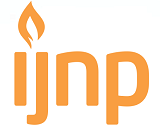PENGEMBANGAN KARIER, MOTIVASI KERJA, DAN KINERJA DOSEN DI STIKES KARYA HUSADA KEDIRI
DOI:
https://doi.org/10.18196/ijnp.v2i2.2082Abstract
Background: The development organization is an essential part of the education system in universities. Human Resources lecturer capabilities as one indicator of the quality of the education agency that fi t the criteria of the Directorate General of Higher Education. Lecturers must be professional in the line of duty Tri Dharma College (Directorate General of Higher Education, 2010).
Objective: To describe the career development, motivation, and performance STIKES Karya Husada Lecturer in Kediri.
Methods: Posivistik qualitative research, action research, sampling techniques: purposive sampling on informants who know most about work STIKES Husada Kediri, then searching for information on informants to be valid and complete.
Data collection: observation, interviews and documentation, the data were analyzed: domain analysis.
Results: Results of the study: 1) Development of career planing: further studies lecturer, fi ling functional position Lecturer, training manners and Applied Approach, Career Management of: mapping of further studies lecturer, fi ling functional, training implementation manners and Applied Approaach, 2) Motivation Internal: Changing image principal tasks and functions Lecturer, work motivation is external: change the payroll system, 3) Performance Lecturer: Competence Pedagogic: understanding the character of lecturers and training implementation Competency Based Curriculum (CBC), Professional Competence: Adjustment of the activities of Tri Dharma College, Competence Personality: training personality. build teamwork in outbound activities, Social Competence: Open yourself to accept criticism and suggestions, improve internal relations and ektern institution.
Conclussion: Conclusions and suggestions: 1) Development of a career, should be followed up with a follow-up, always motivate lecturers to continue on to graduate in order to improve career Lecturer. 2) Work Motivation Lecturer: internal work motivation maintained Lecturer to support external motivation to work, so that the Foundation was pleased to see his teachers eager to work with the standard equation payroll system based on Civil Servants (PNS). 3) Performance Lecturer in the application of pedagogical competence, professional competence, social competence and personal competence should be maintained.
Keywords: Development, Career, Work Motivation, Performance Lecturer
References
Alma, Buchari, 2009, Manajemen Corporate Dan Strategi Pemasaran Jasa Pendidikan, Alfabeta Bandung
Bogdan, Robert C And Sari Knopp Biklen, 1983, Qualitatif Research For Education : Introduction To Theory And Method, Allyn And Bacon, Inc, Boston
Bogdan, Robert C, and Gall Meredith, 1989, Educational Research, An Introduction, Fifth Edition: Longman
Dharma, Surya, 2005, Manajemen Kinerja Falsafah Teori dan Penerapannya, Pustaka Pelajar Yogjakarta
Direktorat Pengupahan dan Jaminan Sosial Ketenagakerjaan Departemen Tenaga Kerja dan Transmigrasi, 2012, UMR/ UMK Propinsi Jawa Timur, Non Sektor, Jawa Timur
Direktorat Jenderal Pendidikan Tinggi, 2010, Pedoman Beban Kerja Dosen dan Evaluasi Pelaksanaan Tridharma Perguruan Tinggi, Jakarta
Direktorat Jenderal Pendidikan Tinggi, 2011, Pedoman Sertifi kasi Pendidik Untuk Dosen (Serdos) Terintegrasi, Jakarta Direktorat Jenderal Pendidikan Tinggi, 2011, Pedoman Beasiswa Pendidikan Pascasarjana, Jakarta
Faisal, Sanapiah,1990, Penelitian Kualitatif, Dasar Dan Aplikasi, YA3, Malang.
Gibson, James L, Alih Bahasa Lindon Saputra, 2010, Organisasi, Perilaku, Struktur DanProses, Binarupa Aksara Publisher, Tangerang
Gomes, Faustino Cardoso, 2001, Manajemen Sumber Daya Manusia, Andi Off set,Yogjakarta
Guba, Egon G and Yvonna S. Lincon, 1981, Eff ective Evaluation, Jossey-Bass publishers, San Fransisco
Haryadi, 2010, Meningkatkan Kinerja Dosen, Lembah Manah, Jakarta
Kirom, Bahrul, 2009, Mangukur Kinerja Pelayanan dan Kepuasan Konsumen, Pustaka Reka Cipta, Bandung
Kopertis Wilayah VII Jatim, 2009, Himpunan Peraturan Tentang Pola Pembinaan Karier Dosen Perguruan Tinggi di Indonesia, Sub Bagian Kepegawaian, Surabaya
Mahmud, 2011. Metode Penelitian Pendidikan. CV Pustaka Setia, Bandung Miles Matt ew B, 2009, Terjemah Rohidi, Tjetjep Rohendi. Qualitative Data analysis, Universitas Indonesia, Jakarta
Miles And Hubermen, 1984, Qualitatif Research, Holt, Rinehart And Winson, Jakarta
Moleong, Lexy J, 2010, Metodologi Penelitian Qalitatif , PT Remaja Rosdakarya, Bandung
Pidarta, Made, 2008. Analisis Data Penelitian- Penelitian Kualitatif dan Artikel. Unesa University Press, Surabaya
Propinsi Jawa Timur, 2012, UMR/UMK PropinsiJawa Timur, Non Sektor, Surabaya
Ridha, Akram, 2010, The Empathy Power, Mengoptimalkan Kinerja Dengan Kekuatan Empati, Rahma Media Pustaka, Surakarta
Sarwono, Jonathan, 2006, Metode Penelitian Kuantitatif dan Kualitatif, Graha Ilmu,Yogjakarta
Satori, jam’an, 2009, Metodologi Penelitian Kualitatif, Alfabeta, Bandung
Sedarmayanti, 2010, Manajemen Sumber Daya Manusia, Reformasi Birokrasi, Refi ka Aditama, Bandung
Setyosari, Punaji, 2010, Metode Penelitian Pendidikan dan Pengembangan, Kencana Prenada Media Group, Jakarta
Siagian, Sondang P, 2010, Manajemen Sumber Daya Manusia, PT Bumi Aksara, Jakarta
Simamora, Henry, 2003, Manajemen Sumber Daya Manusia, STIE YKPN, Jakarta
Sugiyono, 2009, Metode Penelitian Kuantitatif, Kualitatif , Alfabeta, Bandung
Sugiyono, 2009, Statistika untuk penelitian, Bandung, Alfabeta
Stainback, Susan, 1998, Understanding and Conducting Quality Research, Kendall/ Hunt Publishing, Company, Dubuque, Iowa
Spradley James, 1980, Partisipation Observation, Holt, Rinehart And Winson
Tim IKAPI Jawa Barat, 2010. Manajemen Pendidikan, Alfabeta, Bandung
Uno, Hamzah B, 2008, Teori Motivasi Dan Pengukurannya, PT Bumi Aksara, Jakarta
Wirawan, 2009, Evaluasi Kinerja Sumber Daya Manusia, Salemba Empat, Jakarta
Yuniarsih, Tjutju, 2009, Manajemen Sumber Daya Manusia, Alfabeta, Bandung
Issue
Section
License
License
Articles published in the IJNP (Indonesian Journal of Nursing Practices) are licensed under a Attribution 4.0 International (CC BY 4.0) license. You are free to:
- Share — copy and redistribute the material in any medium or format.
- Adapt — remix, transform, and build upon the material for any purpose, even commercially.
This license is acceptable for Free Cultural Works. The licensor cannot revoke these freedoms as long as you follow the license terms. Under the following terms:
Attribution — You must give appropriate credit, provide a link to the license, and indicate if changes were made. You may do so in any reasonable manner, but not in any way that suggests the licensor endorses you or your use.
- No additional restrictions — You may not apply legal terms or technological measures that legally restrict others from doing anything the license permits.
Copyright
Authors who publish with IJNP (Indonesian Journal of Nursing Practices) agree to the following terms:
- Authors retain copyright and grant IJNP (Indonesian Journal of Nursing Practices) the right of first publication with the work simultaneously licensed under an Attribution 4.0 International (CC BY 4.0) that allows others to remix, adapt and build upon the work with an acknowledgment of the work's authorship and of the initial publication in IJNP (Indonesian Journal of Nursing Practices).
- Authors are permitted to copy and redistribute the journal's published version of the work (e.g., post it to an institutional repository or publish it in a book), with an acknowledgment of its initial publication in IJNP (Indonesian Journal of Nursing Practices).














